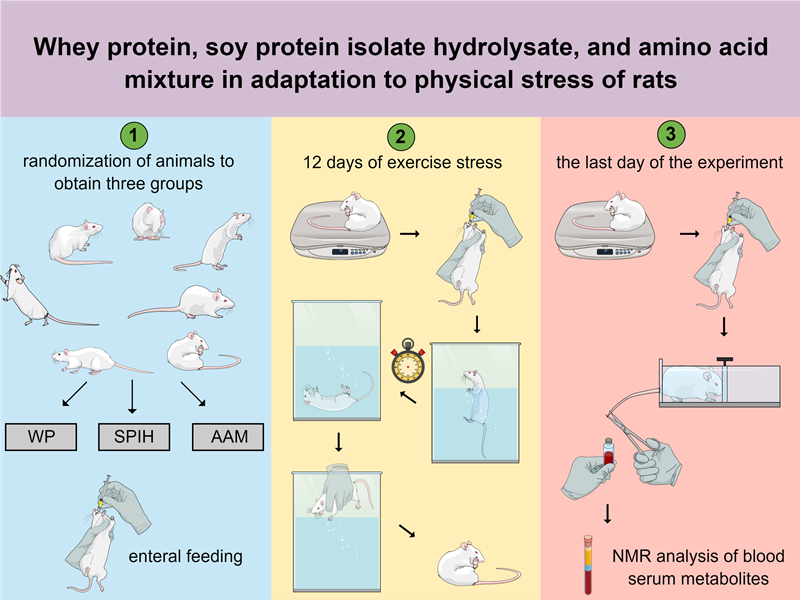Peptides of hydrolysates of food proteins are an easily digestible source of amino acids necessary for the body to adapt to physical stress. Commercially significant hydrolysates include whey protein, casein, and other animal proteins. Hydrolysates of plant proteins are gaining popularity, but they are less common, then animal ones. Soy protein isolate is promising for obtaining the hydrolysates due to its affordable price and balanced amino acid profile. However, there are no direct studies showing an improvement in the result of physical activity when eating soy protein isolate hydrolysate (SPIH). In this work, for the first time, the study was conducted on the safety and efficacy of SPIH during physical load on model animals (rats). It was shown that the hydrolysate did not lead to pathological changes in the viscera, food intake, and weight of animals did not differ from the control group (animals consumed whey protein). Under physical load rats enteral fed SPIH showed a tendency to adapt more quickly to physical stress than the control group and the group of animals that was fed by free amino acids. The metabolites of animal blood serum were studied by NMR spectroscopy. It was shown that by the 95th minute after feeding in the group of rats receiving SPIH, the difference of proteinogenic amino acids concentrations in blood between individuals was significantly less than in the groups receiving whey protein or a mixture of amino acids. In other words, individual biochemical and physiological characteristics of individuals did not affect the assimilation of amino acids of hydrolysate.

